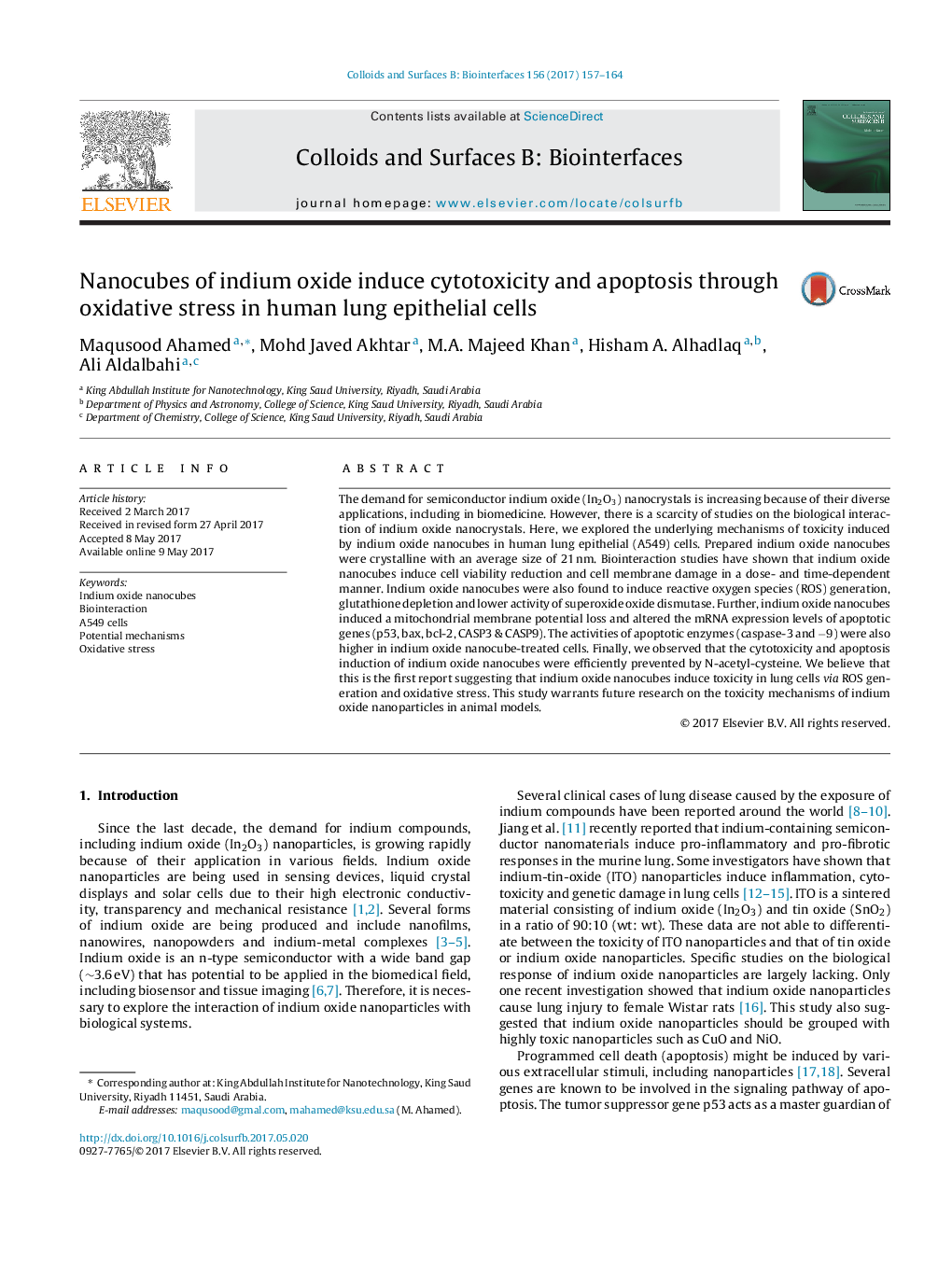| کد مقاله | کد نشریه | سال انتشار | مقاله انگلیسی | نسخه تمام متن |
|---|---|---|---|---|
| 4983269 | 1454248 | 2017 | 8 صفحه PDF | دانلود رایگان |
- Indium oxide (In2O3) nanocubes induced membrane damage and cell death in A549 cells.
- Indium oxide nanocubes induced reactive oxygen species generation.
- GSH depletion and low SOD activity were due to indium oxide nanocubes exposure.
- Altered regulations of apoptotic genes due to indium oxide nanocubes exposure.
- Indium oxide nanocubes induced toxicity was mediated through oxidative stress.
The demand for semiconductor indium oxide (In2O3) nanocrystals is increasing because of their diverse applications, including in biomedicine. However, there is a scarcity of studies on the biological interaction of indium oxide nanocrystals. Here, we explored the underlying mechanisms of toxicity induced by indium oxide nanocubes in human lung epithelial (A549) cells. Prepared indium oxide nanocubes were crystalline with an average size of 21Â nm. Biointeraction studies have shown that indium oxide nanocubes induce cell viability reduction and cell membrane damage in a dose- and time-dependent manner. Indium oxide nanocubes were also found to induce reactive oxygen species (ROS) generation, glutathione depletion and lower activity of superoxide oxide dismutase. Further, indium oxide nanocubes induced a mitochondrial membrane potential loss and altered the mRNA expression levels of apoptotic genes (p53, bax, bcl-2, CASP3 & CASP9). The activities of apoptotic enzymes (caspase-3 and â9) were also higher in indium oxide nanocube-treated cells. Finally, we observed that the cytotoxicity and apoptosis induction of indium oxide nanocubes were efficiently prevented by N-acetyl-cysteine. We believe that this is the first report suggesting that indium oxide nanocubes induce toxicity in lung cells via ROS generation and oxidative stress. This study warrants future research on the toxicity mechanisms of indium oxide nanoparticles in animal models.
136
Journal: Colloids and Surfaces B: Biointerfaces - Volume 156, 1 August 2017, Pages 157-164
